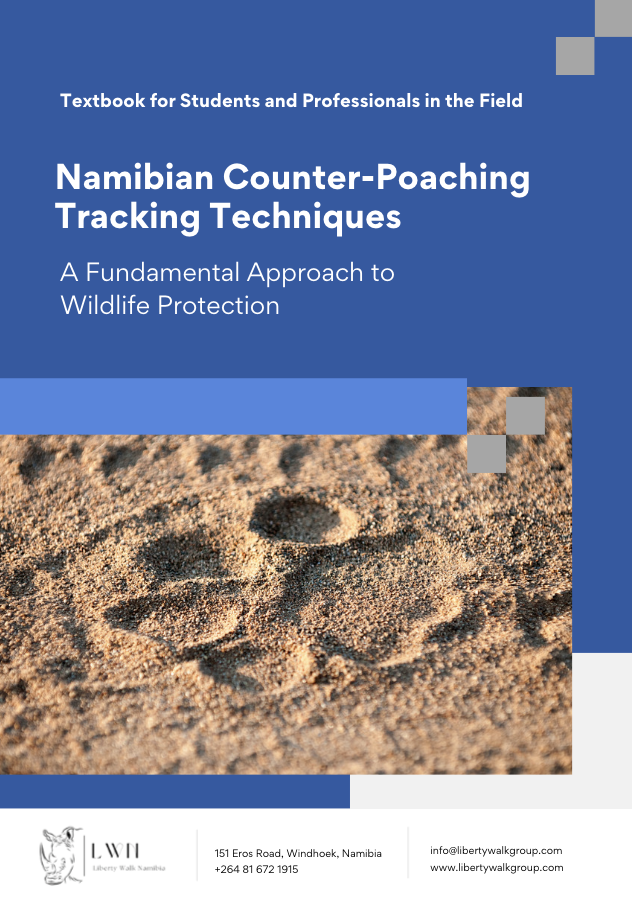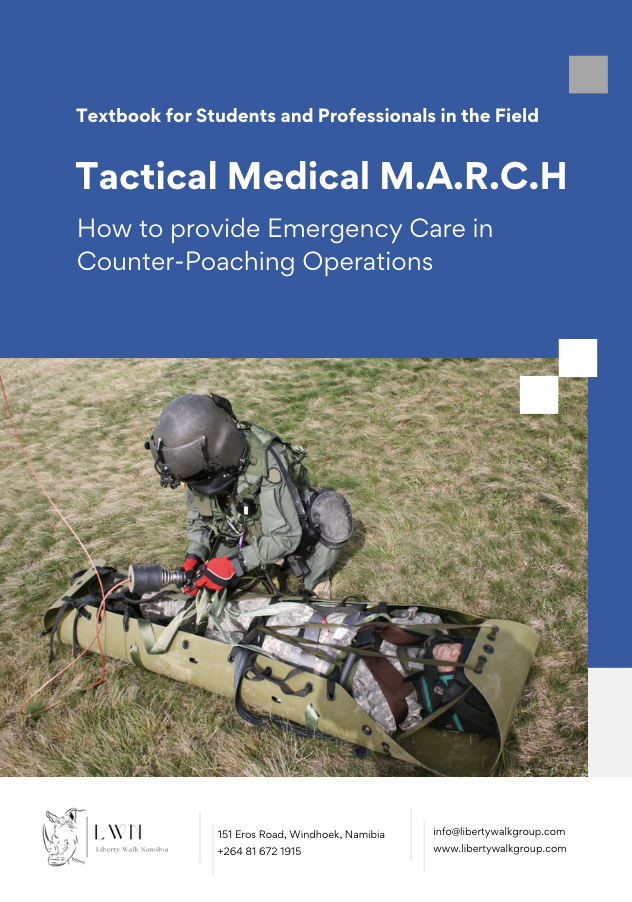Conservation and Wildlife Technology & Innovation
The textbook Wildlife Technology & Innovation: How Innovative Solutions Help Conserve and Protect Wildlife (97 pages) provides a comprehensive exploration of technological advancements in Namibian wildlife conservation. Spanning six modules, it covers radio communication, digital literacy, wildlife forensics, drone technology, and artificial intelligence, with Module 6 focusing on AI applications in addressing cheetah poaching.
As a core component of the National Certificate in Counter-Poaching at NQF Level 5, the textbook (60 credits) aligns with NQA and NTA vocational standards, ensuring competency-based training for accreditation of the National Counter-Poaching Curriculum.
It supports MEFT’s conservation goals and the Blue Rhino Taskforce’s anti-poaching efforts, equipping learners with technological skills to enhance counter-poaching operations within the Liberty Walk Namibia (LWN) Counter-Poaching Curriculum, complementing Poaching in Namibia, Student Textbook: Counter-Poaching in Namibia, and LWN Advanced Tracking Textbook.
Basic Tracking
Understand the principles, ethics, and legal frameworks of counter-poaching in Namibia.
Identify and interpret environmental signs for tracking wildlife and poachers.
Apply psychological strategies and analytical reasoning to enhance tracking effectiveness.
Demonstrate physical preparedness and team-based skills for field operations.
Integrate traditional tracking methods with modern technologies (e.g., GIS, GPS, AI).
Document observations systematically to support anti-poaching strategies.
Collaborate effectively in diverse teams to combat poaching threats.
Tactical Medical Care
The "Tactical Medical MARCH" syllabus is a vital component of the Liberty Walk Namibia (LWN) Counter-Poaching Curriculum, designed to achieve accreditation under the Namibian Qualifications Authority (NQA) and National Qualifications Framework (NQF).
This framework equips anti-poaching units with skills to manage casualties in high-threat environments using the MARCH protocol (Massive bleeding, Airway, Respiratory, Circulation, Hypothermia/Heat injury), adapted from Tactical Combat Casualty Care (TCCC) principles used by the British Army, Royal Marine Commandos, and Rhodesian Light Infantry (RLI).
Pitched at NQF Levels 4–6, it caters to students with basic to advanced skills, complementing syllabi like Basic Tactics, Advanced Tracking, and Legal Framework.



